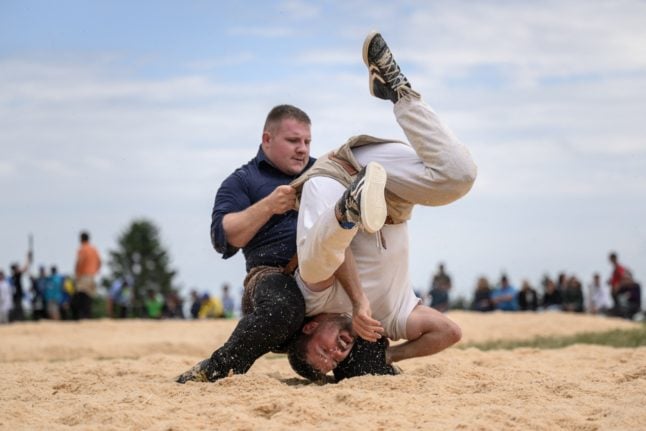SPORT
Uefa: Euros host nation ‘must respect human rights’
The host nation of Euro 2024 must meet certain criteria relating to the respect of human rights, European football's governing body Uefa said on Monday as they prepare to choose between the candidacies of Germany and Turkey.
Published: 2 May 2017 09:04 CEST

Uefa president Aleksander Ceferin. Photo: Markku Ulander/Lehtikuva/AFP
The countries are the only two to have submitted declarations of interest in hosting the competition and Uefa will decide between the two in September 2018.
“For the first time ever, these bid requirements contain specific criteria relating to the respect of human rights,” Nyon-based Uefa said in a statement.
The criteria are based on the United Nations' Guiding Principles on Business and Human Rights and other UN conventions.
Criteria regarding compliance and anticorruption measures have also been included as requirements.
“The protection of human rights and labour rights is of the utmost importance for Uefa,” said president Aleksander Ceferin.
“From now on, bidding nations will have to adhere strictly to these articles in the framework of the organization of all our tournaments and finals.”
After Euro 2016, the first 24-team tournament held in France and won by Portugal, Euro 2020 will be held in 13 different cities around Europe, with the semifinals and final to be played at Wembley in London.
If Turkey succeeds in its bid for 2024, it will be the biggest sporting event ever held in the country. It has already failed in three previous bids to host the Euros.
Turkish President Recep Tayyip Erdogan recently claimed a narrow victory in a referendum on expanding his powers.
Opponents claim it will lead to one-man rule while the government says it will ensure political stability for a country that has experienced multiple unstable coalitions.
Around 47,000 people have been arrested in Turkey under a nine-month state of emergency in place since a failed military coup in July 2016.
Url copied to clipboard!


 Please whitelist us to continue reading.
Please whitelist us to continue reading.
Member comments